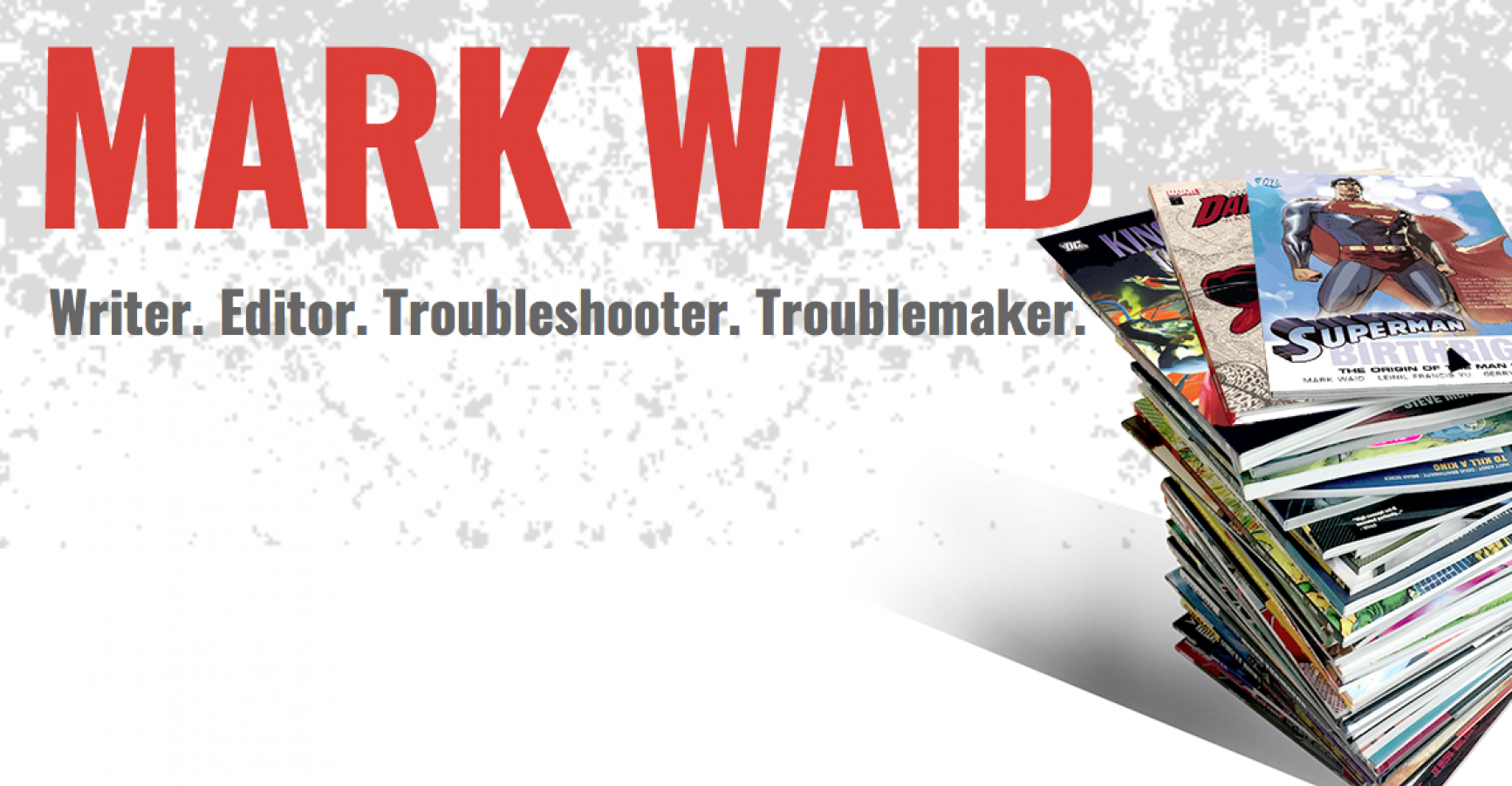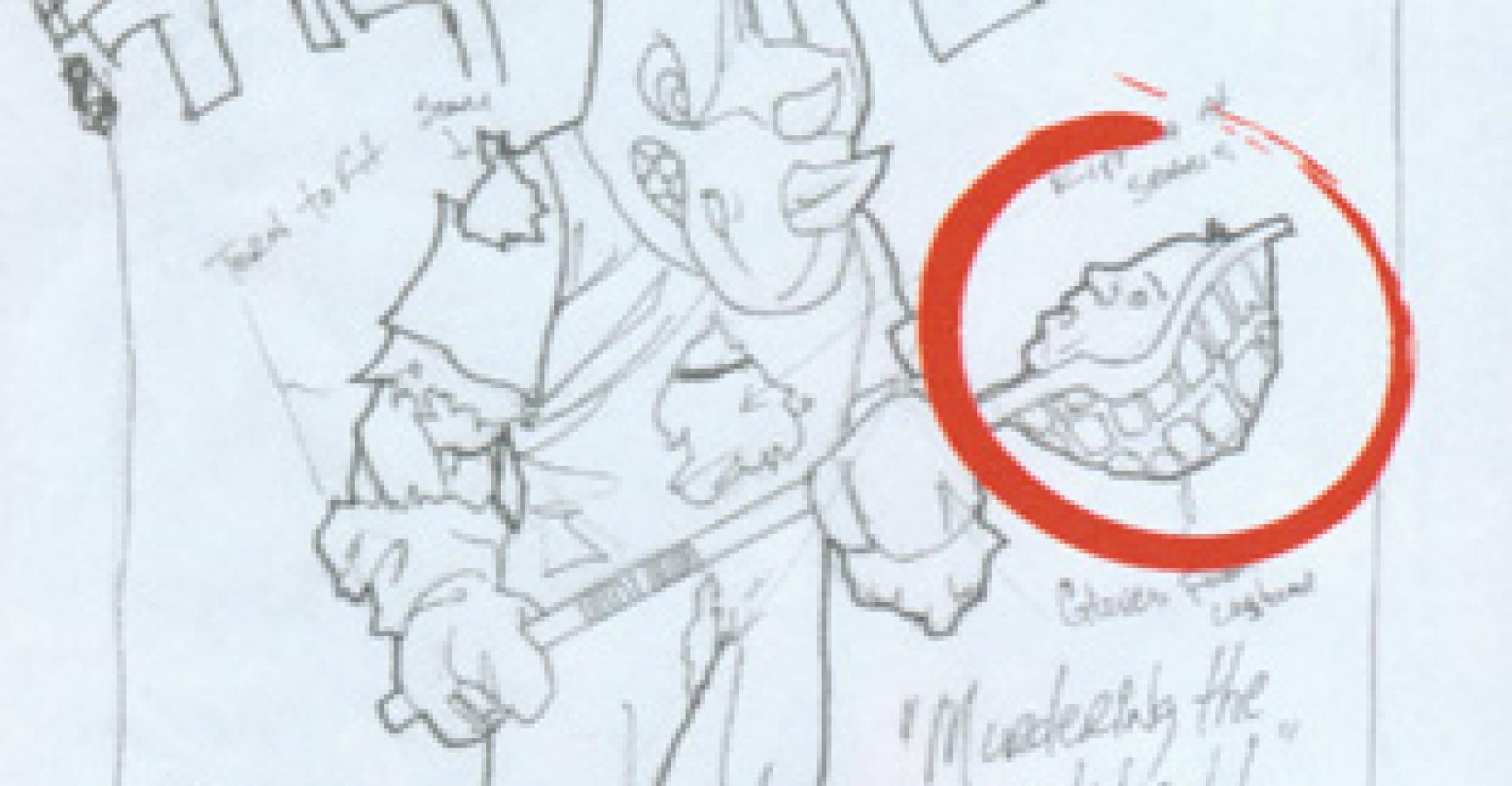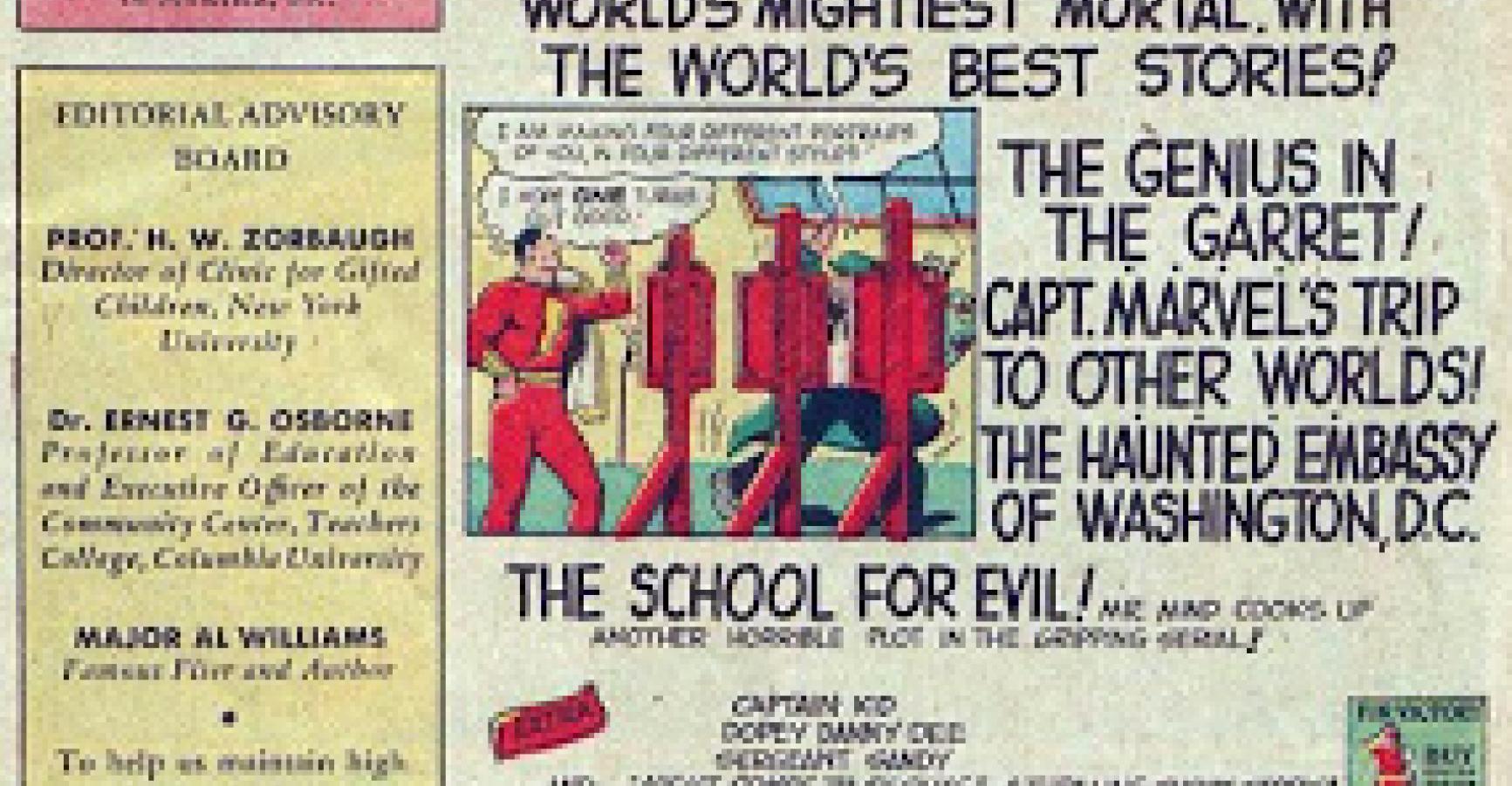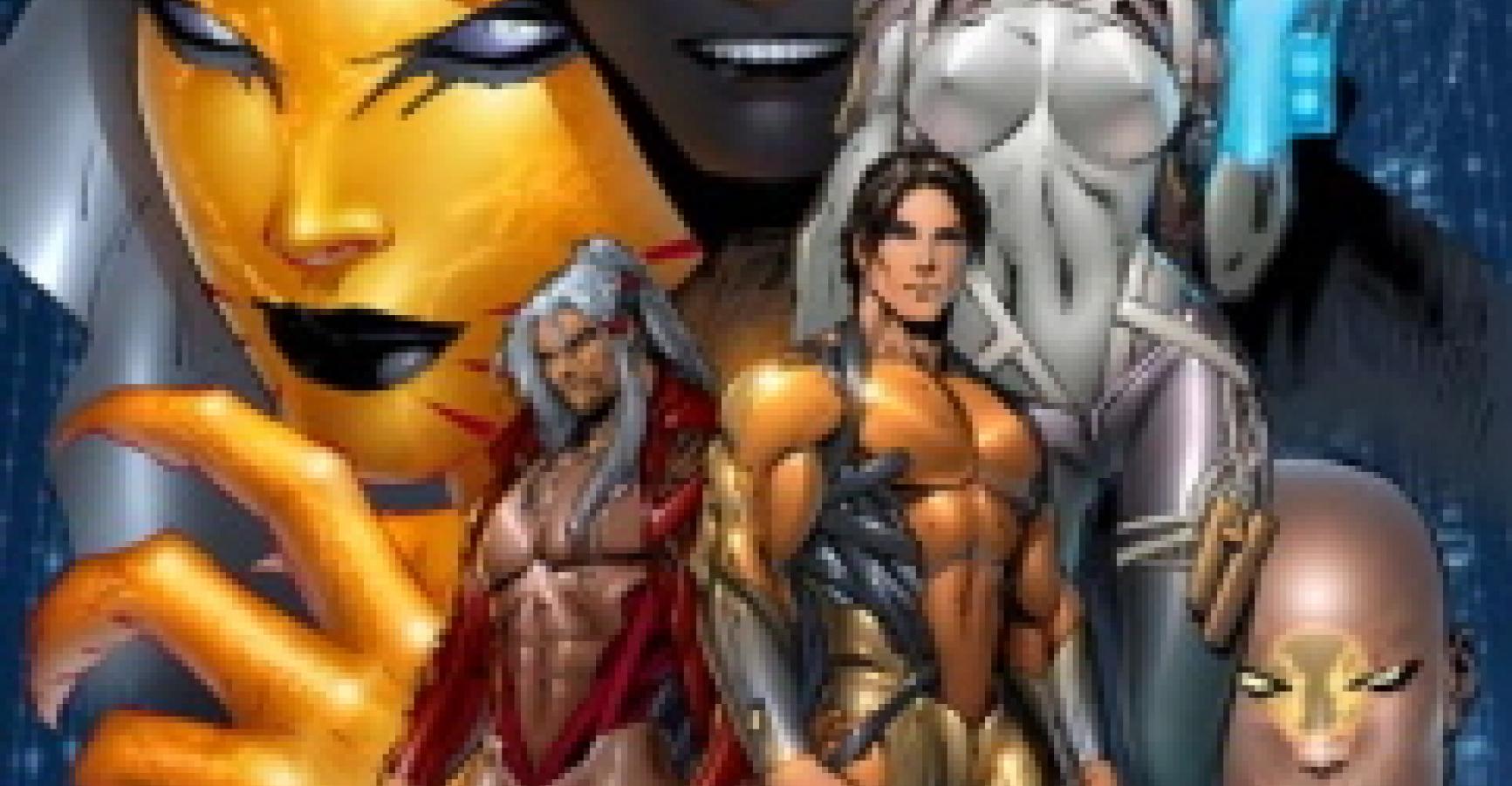Following up on some of last week’s post about The Job of a Comic Book Editor….
I made several big presumptions and (at least) one ill-phrased comment, all of which sparked worthwhile discussion not only here but also on the forums over at boom-studios.com and in person over drinks. These points are well worth addressing here.
Presumption One: You can follow my Inviolable Rules because you, the editor, are working with writers and artists who have some degree of talent and are not, in fact, illiterate or anatomy-carefree hacks who you inherited because they bought drinks and/or hookers and/or drunken hookers for someone higher than you on the corporate roster who seems oblivious to their lack of talent.
That’s a bigger gimme than it oughta be. Luckily, lack of talent will generally bury the unworthy, but it’s an absolute fact that all comics editors and publishers, myself included, rely on at least one creator who they believe to be sublimely talented but who everyone else rightly knows should be cleaning pools for living. I don’t know why this one blind spot exists so relentlessly, but it’s so absolutely true that I’ve come to accept it as some sort of weird Necessary Impurity built into the editorial desk.
Consequently, if you have any sort of editorial workload at all–at DC, editors and their assistants handle anywhere from four to eight monthly books; at Marvel, they handle twice that; and at Boom!, it’s somewhere in the middle–you’re probably stuck with at least one writer or artist you yourself would not have willfully hired. If you’re lucky, there’s enough talent there whereby stories are being produced that, even if they’re not 100% to your taste, are good stories. If you’re unlucky, you’re shackled to a writer who’s clueless. Good luck with that. All I can tell you is, in my experience and in the long run, you’ll be able to sleep better at night knowing you’ve argued with the guy and served the story than you will if you cave in on your instincts to follow the path of least resistance.
Presumption Two: The writer you’re trying to edit is a good guy who understands concepts like “company standards,” “style guide,” and “Just because Grant Morrison once had Batman shoot someone with a gun doesn’t mean you can do it.” A lot of companies, BOOM! included, are skittish about the word “goddamn,” for instance, because as unbelievable as this is to me, there are still people out there who are more offended by one word of language than they are by the entirety of Dane Cook’s existence. This presumption is directly entwined with….
Presumption Two-A: Your freelancers give a rat’s ass what you say and are not arrogant prima donnas who bristle every time you suggest to them that “Spider-Man” does, in fact, have a hyphen in it. It’s easy for me to sit here and say “Don’t pose problems without offering solutions,” but there are always going to be a few writers and artists who are so sensitive/insecure/gun-shy that they’re going to perceive any suggestion you make as horning in on their job. Basically, not that you needed to hear this from me, that’s their problem, not yours, but your life will be easier if you learn how to handle and massage those egos on a case-by-case basis. If you’re calm and level-headed with your freelancers, I promise that they will eventually learn not to flinch every time you open your mouth.
And, finally, the rule “Never point out a problem unless you have a solution to offer” was clunkily phrased and, in retrospect, should have read as “If you’re gonna point out a problem with the story, have a solution to offer.” I didn’t mean to suggest you should ever fear pointing out problems; I was instead heavily underscoring the point that if you think in terms of solutions, that tends to turn your kneejerk reactions into articulate statements with some thought behind them.
*****
As an editor, you’re certainly well within your rights and your job description to enforce whatever editorial guidelines have been laid down by your bosses, and I kinda thought that was understood, but I apologize for not making that point more explicitly. It’s easy for Writer Me to forget that not everyone in comics has an “I’ve Read 50,000 Comics In My Lifetime” inbred understanding of basically what material is and isn’t considered problematic in American mainstream comic books.
I think the toughest, most stressful part of the editor’s job is that serving the material and serving the creators don’t always go hand-in-hand. If you’re editing someone else’s creator-owned book, it’s an easier gig; ultimately, you can advocate for whatever you like, but the creator generally has final say so long as the publisher’s still willing to publish his or her work. If you’re working at Marvel or DC or Dark Horse or wherever on corporate-owned properties, you’re expected by your corporate overlords to know where to draw the line between letting these crazy freelancers have their heads and protecting these corporate assets from stories or art that might “damage” them. Worse, the placement of that line changes from hour to hour and depends not only on the ephemeral definition of “damage” but also on (a) the clout of the freelancer, (b) your clout in the company, (c) however corporate might be overreacting on some mail they got from an aggrieved crank, (d) whether your editor in chief had a fight with his wife this morning and wants to exert some power, (e) how seriously your boss takes the comments on message boards, and (f through z) any number of other random factors.
Comics Editorial really is a complex job on a corporate level, and as I have often said, I’m lucky that I’m the E-I-C and don’t have to answer to anyone who isn’t in tune with my own tastes and standards of craft. If I had to get screamed at by corporate overlords who were overruling my story instincts on a regular basis, I’d be in jail now. That gives me the luxury of never really having to worry about anything other than answering the question “Does this make the story better?“, but I promise you, no matter how lenient or strict your own bosses are, when you carve everything else out of the way, that remains the only important question and must always be your North Star.
Comments in the Mark Waid Forum. Bring ’em.



